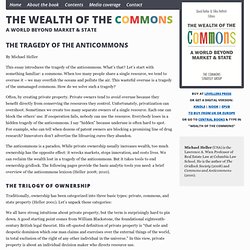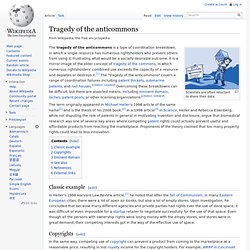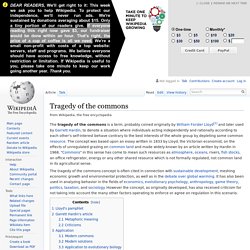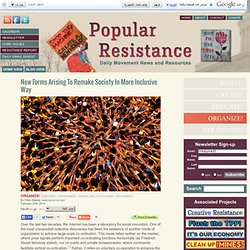

The tragedy of the commons is a false and dangerous myth. In December 1968, the ecologist and biologist Garrett Hardin had an essay published in the journal Science called ‘The Tragedy of the Commons’.

His proposition was simple and unsparing: humans, when left to their own devices, compete with one another for resources until the resources run out. ‘Ruin is the destination toward which all men rush, each pursuing his own best interest,’ he wrote. ‘Freedom in a commons brings ruin to all.’ Hardin’s argument made intuitive sense, and provided a temptingly simple explanation for catastrophes of all kinds – traffic jams, dirty public toilets, species extinction. His essay, widely read and accepted, would become one of the most-cited scientific papers of all time.
Even before Hardin’s ‘The Tragedy of the Commons’ was published, however, the young political scientist Elinor Ostrom had proven him wrong. When it came to humans and their appetites, Hardin assumed that all was predestined. Updates on everything new at Aeon. The Tragedy of the Anticommons. This essay introduces the tragedy of the anticommons.

What’s that? Let’s start with something familiar: a commons. When too many people share a single resource, we tend to overuse it – we may overfish the oceans and pollute the air. This wasteful overuse is a tragedy of the unmanaged commons. How do we solve such a tragedy? Often, by creating private property. The anticommons is a paradox. The trilogy of ownership Traditionally, ownership has been categorized into three basic types: private, commons, and state property (Heller 2001). We all have strong intuitions about private property, but the term is surprisingly hard to pin down. Commons property refers to shared resources, resources for which there is no single decision maker. Tragedy of the anticommons. Scientists are often reluctant to share their data Classic example[edit] In Heller's 1998 Harvard Law Review article,[1] he noted that after the fall of Communism, in many Eastern European cities, there were a lot of open air kiosks, but also a lot of empty stores.

Upon investigation, he concluded that because many different agencies and private parties had rights over the use of store space, it was difficult or even impossible for a startup retailer to negotiate successfully for the use of that space. Even though all the persons with ownership rights were losing money with the empty stores, and stores were in great demand, their competing interests got in the way of the effective use of space.
Copyrights[edit] Tragedy of the commons. The tragedy of the commons concept is often cited in connection with sustainable development, meshing economic growth and environmental protection, as well as in the debate over global warming.

It has also been used in analyzing behavior in the fields of economics, evolutionary psychology, anthropology, game theory, politics, taxation, and sociology. However the concept, as originally developed, has also received criticism for not taking into account the many other factors operating to enforce or agree on regulation in this scenario. Lloyd's pamphlet[edit] In 1833, the English economist William Forster Lloyd published a pamphlet which included an example of herders sharing a common parcel of land on which they are each entitled to let their cows graze. In English villages, shepherds had sometimes grazed their sheep in common areas, and sheep ate grass more severely than cows.
Garrett Hardin's article[edit] [edit] New Forms Arising To Remake Society In More Inclusive Way. Over the last two decades, the Internet has been a laboratory for social innovation.

One of the most unexpected collective discoveries has been the existence of another mode of organization to achieve large-scale co-ordination. This mode relies neither on the market, where price signals perform important co-ordinating functions horizontally (as Friedrich Hayek famously stated), nor on public and private bureaucracies, where commands facilitate vertical co-ordination.[1] Rather, it relies on voluntary co-operation to enhance the use value of a shared resource.
Yochai Benkler dubbed this mode “commons-based peer production.”[2] While not all forms of co-operation need be beneficial to society at large, the structural experience of co-operation is a key element in the political project of strengthening social solidarity. The Dark Side of the Sharing Economy. Commons - Biens Communs - Bens comuns - Bienes comunes. Open Culture. The Sharing Economy Backlash. Culture (Anthropology) DRM & The Public Domain. Open Source Culture & Capital. Types of Markets.